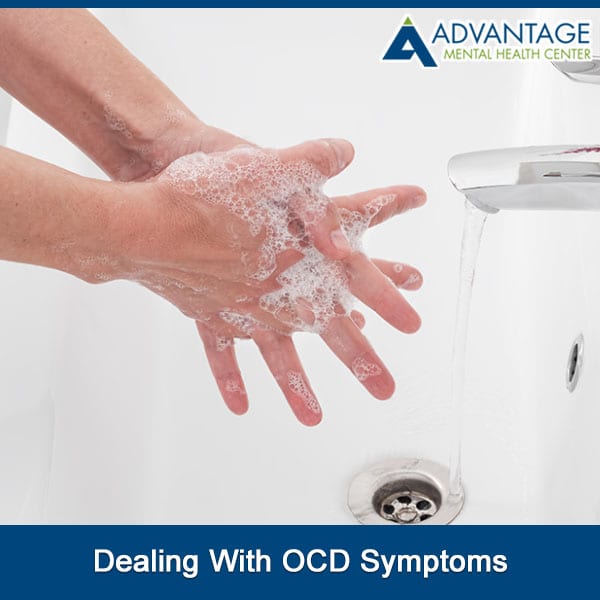Obsessive-Compulsive Disorder (OCD) involves being obsessed with something, acting compulsively, or oftentimes both. These obsessions typically occur in the form of recurrent, unwanted thoughts. However, just because you have intrusive thoughts doesn’t mean you have this disorder. The difference has to do with the degree to which a person’s life is affected by these thoughts. When you have Obsessive-Compulsive Disorder you may see these thoughts as being dangerous or immoral. You may worry that you’ll need to act upon these thoughts. For instance, you may think that if you worry about taking your clothes off in public, you’re going to eventually do it.
Unfortunately, the more you worry about such thoughts the more of these thoughts you’ll experience. These thoughts can be about:
- Illness and germs
- Forgetting to do something like turn the stove off or lock the door
- Losing control (e.g. driving off the road, hurting someone)
- Going crazy (e.g. causing a scene, committing a crime, harming oneself on purpose)
The Most Common Types of Obsessions
When it comes to obsessions, researchers have discovered that people who have a mental health condition known as OCD suffer from common types. These include:
- Fear of germs
- Fear of harm (e.g. doors aren’t locked, an electrical outlet will catch on fire)
- Excessive concern with symmetry and order
- Being obsessed with their body
- Unwanted religious thoughts (e.g. thoughts regarded as sacrilegious or blasphemous)
- Fears that you may harm your children
The Most Common Types of Compulsions
In the same way that people with this mental health condition have similar obsessions, people with OCD also have similar compulsions. To better understand these compulsions you must first know that compulsion is defined as a response that is meant to deal with or neutralize an obsession. This can be either an overt action or a mental action. The most common ones for people with this mental health condition include:
- Checking on something
- Cleaning or washing repeatedly
- Repeating special words or prayers
- Placing things in order
- Counting items
Coping with OCD
OCD is considered a type of anxiety disorder. Research shows that there is some element of biological predisposition. What makes this mental health condition so problematic is that the coping mechanisms people use oftentimes tend to make their problems worse. Some of the techniques that are used include:
- Emotional reasoning: An example of this would be someone who feels fine when they wash their hands three times a day. However, there’s one day when they do this and they don’t feel ok. Instead, they find themselves feeling anxious so they resolve that they’ll start washing their hands four times a day from now on so that they can be clean.
- Worrying about going crazy: The behaviors that people perform to make themselves feel better or to deal with their unwanted thoughts will frequently make them feel like they’re going crazy. When this happens they’ll become even more anxious.
- Impaired memory: The more you check something the worse your memory will grow in regards to whether you’ve already checked that thing. This is also true when you’re trying to block out unwanted thoughts. The more you try to do so, the more you’ll experience these thoughts.
Interpersonal stress: Frequently these obsessions and compulsions will interfere with a person’s relationships and job. This frequently results in additional stress.
If you or someone you love is suffering from OCD or another mental health condition, contact Advantage Mental Health Center in Clearwater and Tampa Bay, FL, today.
Picture Credit: Freepik


